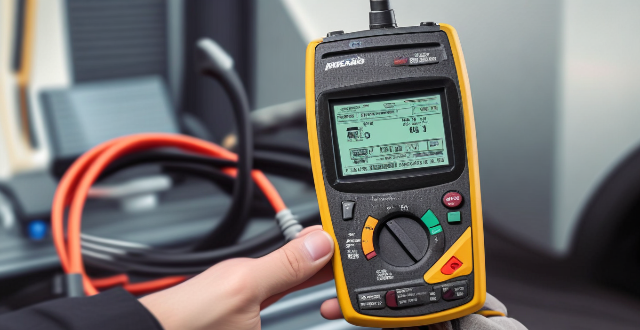Working with electronic speed controllers (ESCs) requires careful attention to safety precautions to prevent injuries or damage to equipment. Some important safety measures include disconnecting power sources, wearing protective gear, using proper tools, following manufacturer's instructions, keeping away from flammable materials, being cautious with high voltage, avoiding overloading, and seeking professional help if unsure about proper installation or operation.

Safety Precautions for Working with an Electronic Speed Controller
Working with electronic speed controllers (ESCs) requires careful attention to safety precautions to prevent injuries or damage to equipment. Here are some important safety measures to follow:
Disconnect Power Sources
- Always disconnect the power sources before performing any maintenance or troubleshooting on the ESC.
- Make sure to turn off the main power switch and remove any batteries connected to the system.
Wear Protective Gear
- Wear appropriate personal protective equipment (PPE), such as insulated gloves and safety glasses, when handling ESCs.
- If working near moving parts, wear long sleeves and pants to protect your skin from abrasions.
Use Proper Tools
- Use only insulated tools when working on ESCs to avoid electric shocks.
- Avoid using metal tools that can come into contact with live circuits or terminals.
Follow Manufacturer's Instructions
- Read and understand the manufacturer's instructions and specifications for the ESC before installation and operation.
- Ensure that the ESC is compatible with the motor and other components of the system.
Keep Away from Flammable Materials
- Keep ESCs away from flammable materials, such as gasoline or solvents, as they can generate heat during operation.
- Store ESCs in a cool, dry place to prevent overheating and potential fire hazards.
Be Cautious with High Voltage
- Be cautious when working with high voltage ESCs, as they can deliver dangerous electric shocks if not handled properly.
- Never touch the ESC while it is powered on, as this can cause serious injury or damage to the equipment.
Avoid Overloading
- Do not exceed the recommended input voltage or current rating of the ESC, as this can cause overheating and potential failure.
- Ensure that the ESC is properly matched to the motor and other components to avoid overloading and damage.
Seek Professional Help
- If you are unsure about how to properly install or operate an ESC, seek professional help from a qualified technician or engineer.
- Never attempt to modify or repair an ESC without proper training and authorization, as this can void warranties and increase the risk of injury or damage.